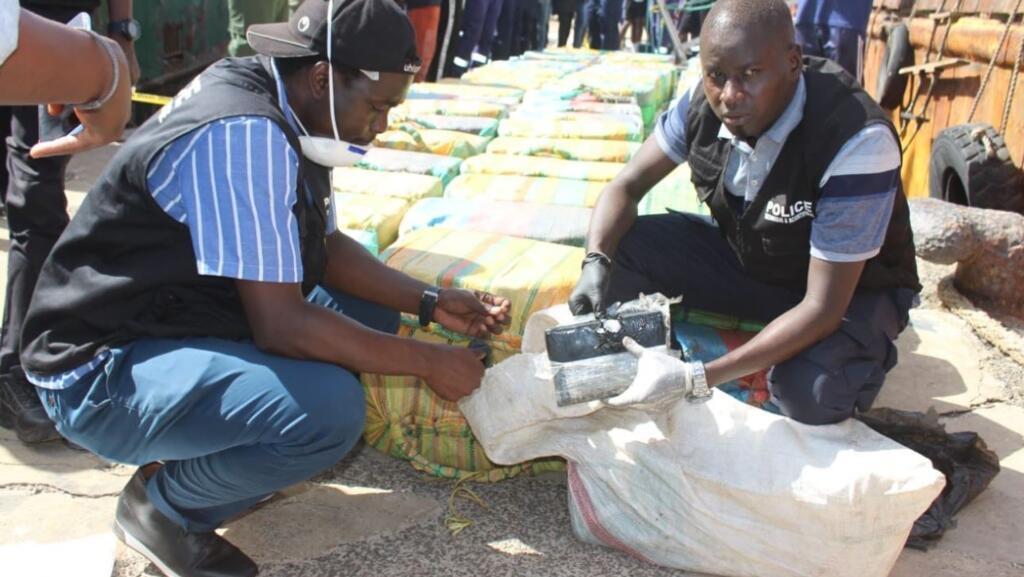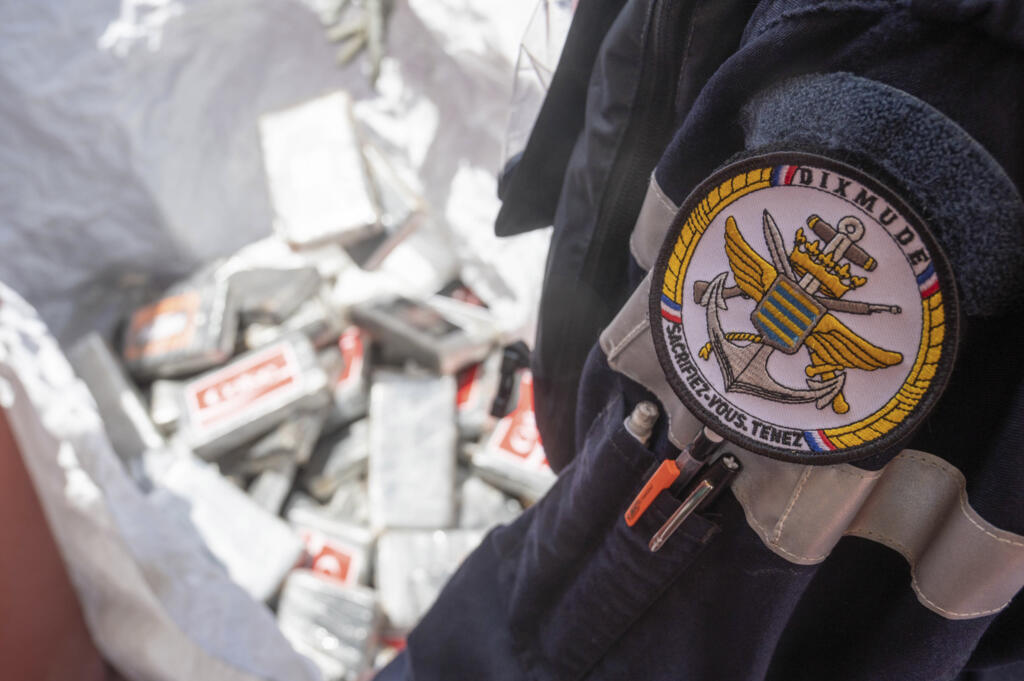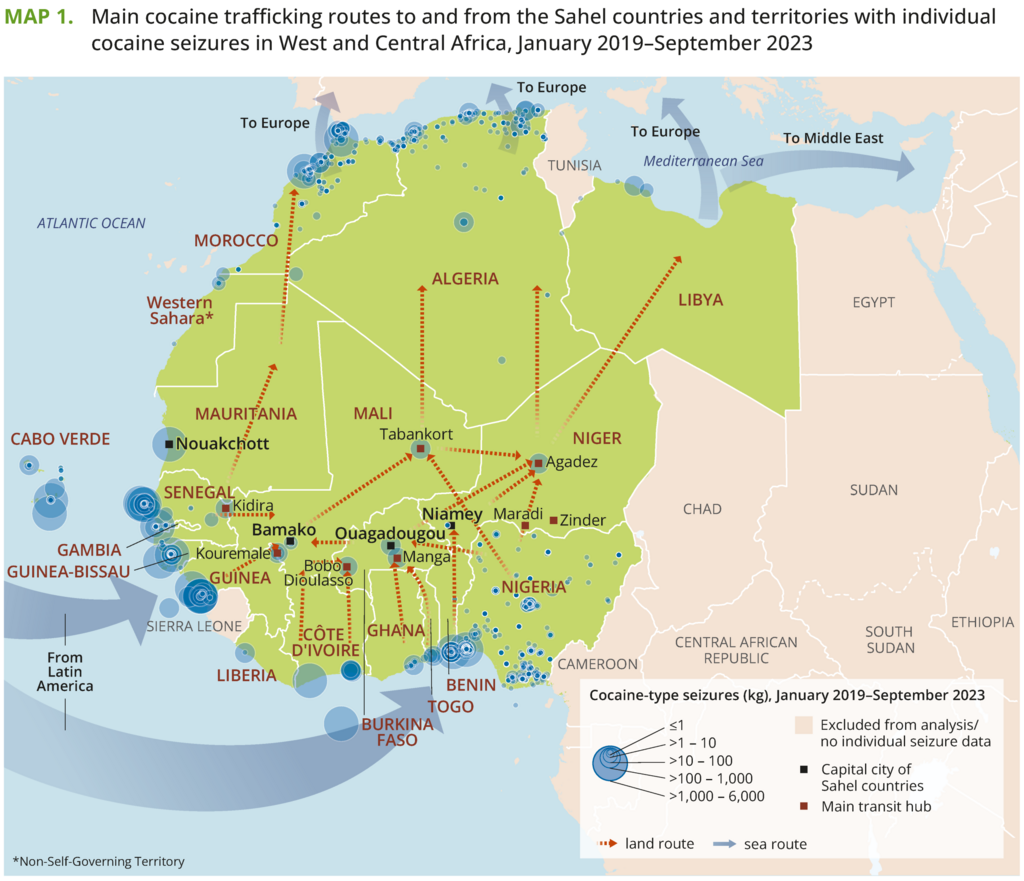
Balkan crime groups are working with Brazilian cartels to turn West Africa into a gateway for Europe’s cocaine market, a new report warns – saying the trade is driving corruption, local drug use and instability across the region.
The Global Initiative Against Transnational Organised Crime (GI-TOC) says Balkan networks are embedding across West Africa to move large quantities of cocaine to Europe, forging alliances with Latin American cartels and local intermediaries.
On Monday, the French Navy seized nearly six tonnes of cocaine from a fishing vessel in international waters off the West African coast. GI-TOC says such seizures only hint at the scale of trafficking through the region.
“A third of Europe’s cocaine now transits through West Africa, and that share could rise to half by 2030,” Lucia Bird Ruiz, director of GI-TOC’s Observatory of Illicit Economies in West Africa, told RFI.
“Groups from Montenegro, Serbia and Albania are today among the most significant actors in the global cocaine trade, and their presence in the region is increasingly entrenched.”

Balkan mafia meet Brazilian cartels
The report says Montenegrin clans such as Kavac and Skaljari – rivals with ties to Italy’s ’’Ndrangheta mafia group – have forged close partnerships with Latin American cartels.
It names Brazil’s Primeiro Comando da Capital, the country’s most powerful criminal organisation formed in Sao Paulo’s prisons, as one of their main partners. GI-TOC says this collaboration has allowed Balkan groups to control the supply chain from production in South America to retail markets in Europe.
Cocaine and synthetic drugs power new era of global trafficking
The report says West Africa offers traffickers expanding port facilities, weak oversight and a location that makes it ideal as a transit point.
As controls on direct routes from Latin America to Europe have tightened, traffickers are increasingly using coastal states such as Senegal, Guinea-Bissau, Sierra Leone and Cape Verde.
“The cocaine market in Europe grows larger every day, while controls on direct routes from Latin America have intensified. That is why West Africa has become so important for traffickers,” Bird Ruiz said.
Brokers in the middle
GI-TOC says a key feature of this phase is the role of brokers. Often Balkan nationals sent to West Africa for months at a time, they act as fixers, managing shipments, cultivating ties with local partners and ensuring discretion.
One such network, the report says, operated out of Freetown, Sierra Leone, where a broker set up a company to handle imports and repackage cocaine into containers bound for Belgium.
“Intermediaries are absolutely central to the way these groups operate,” Bird Ruiz said to RFI. “They provide flexibility, build relationships on the ground, and increasingly serve as the nexus point between different criminal networks.”
How the Caribbean became a front line in France's fight against the cocaine trade
GI-TOC warns that while the main aim is moving cocaine northwards, the trade is also fuelling problems within West Africa.
Payments to brokers are sometimes made in drugs instead of cash, driving up local consumption. Crack cocaine in particular is spreading, while real prices in Ghana and elsewhere have fallen since 2019.
Bird Ruiz said the impact is already clear, with rising addiction rates, fragile health systems under strain and corruption at state level. “Some of these groups have already corrupted senior political figures in Europe,” she said. “We should expect them to deploy the same strategies in West Africa.”

Stronger cooperation
The report stresses that tackling the trade will require more than occasional high-profile seizures. It calls for stronger intelligence systems, better data collection and above all closer cooperation between African and European law enforcement agencies, port authorities and private companies.
GI-TOC warns that without such measures, West Africa risks becoming even more entrenched in the global cocaine economy.
“It’s not just a question of organised crime,” Bird Ruiz told RFI. “It’s a public health issue, a governance issue, and potentially, a security issue for the entire region.”







